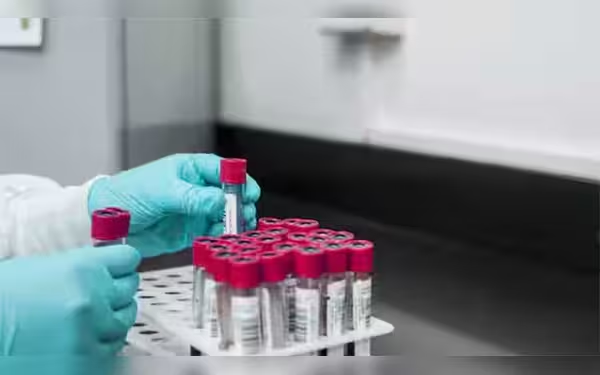Saturday, November 16, 2024 08:32 PM
New Universal Blood Test for Cancer Detection in the UK
- New blood test detects 12 cancer types.
- Early detection improves survival rates.
- Government-funded initiative aims for accessibility.
 Image Credits: dunyanews.tv
Image Credits: dunyanews.tvA new blood test in the UK aims to detect 12 types of cancer, enhancing early diagnosis and improving survival rates.
In a groundbreaking development for cancer detection, Health Secretary Wes Streeting, a cancer survivor himself, has announced a new government-funded initiative aimed at revolutionizing how we screen for cancer. This innovative blood test is designed to detect twelve different types of cancers, potentially changing the landscape of early diagnosis and treatment. With cancer being one of the leading causes of death worldwide, advancements in detection methods are crucial for improving survival rates.
The proposed blood screening, referred to as a "universal" test, is set to be implemented within the next five years. This test utilizes a method similar to the PCR (Polymerase Chain Reaction) tests that gained prominence during the COVID-19 pandemic. By identifying cancer at an earlier stage, the test aims to significantly increase the chances of survival for patients, ultimately saving countless lives each year.
Early detection is key when it comes to cancer treatment. Many cancers, if caught in their initial stages, can be treated more effectively, leading to better outcomes for patients. The introduction of this blood test could mean that individuals will no longer have to wait for symptoms to appear before seeking medical advice. Instead, they can proactively monitor their health, leading to timely interventions.
Moreover, the accessibility of a simple blood test could encourage more people to get screened regularly. This is particularly important in regions where healthcare access is limited, as it provides a straightforward method for individuals to check for potential health issues without the need for invasive procedures.
As we look towards the future, the implications of this new blood test are profound. It not only represents a significant step forward in cancer detection but also embodies hope for millions of individuals and families affected by this disease. The commitment from the government to fund such initiatives reflects a growing recognition of the importance of early detection and preventive healthcare.
The introduction of a universal blood test for cancer detection is a promising development that could save lives and transform cancer treatment. As we await its rollout, it is essential for individuals to stay informed about their health and to engage in regular screenings. The fight against cancer is ongoing, but with advancements like this, there is hope for a brighter future.













